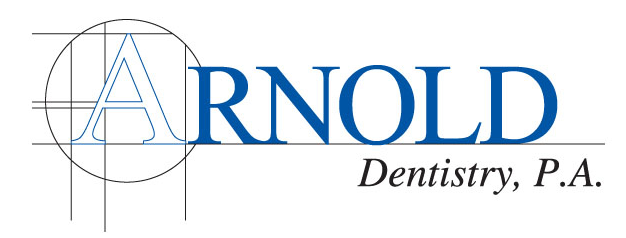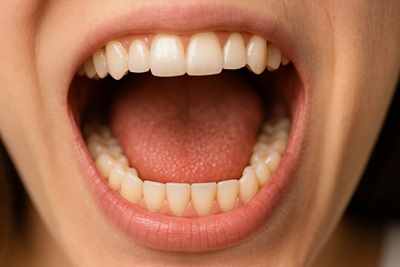Most People Know About Their Gut Microbiome — But Did You Know About Your Oral Microbiome?
Tue, Sep 2nd, 2025
When you hear the word microbiome, your mind probably goes straight to the gut. Over the last decade, research has exploded around the trillions of bacteria that live in our digestive system and how they influence everything from immunity to mood.
But here’s something most people don’t realize: your mouth has its own microbiome, too. This oral microbiome is a thriving community of bacteria, fungi, and microorganisms that live on your teeth, gums, tongue, and cheeks. Far from being just “germs,” this ecosystem plays a critical role in your dental health — and even your overall wellness.
Let’s explore what the oral microbiome is, why it matters, and how you can keep it healthy
What Is the Oral Microbiome?
The oral microbiome is made up of more than 700 different species of bacteria along with fungi and other microscopic organisms. Together, they form a balanced ecosystem in your mouth.
- Good bacteria help protect teeth and gums, keep harmful microbes in check, and even aid digestion by starting the breakdown of food
- Harmful bacteria, on the other hand, thrive on sugar and poor oral hygiene. They produce acids that erode enamel and toxins that irritate gum tissue
When the balance between these groups is maintained, your mouth stays healthy. But when harmful bacteria take over, that’s when cavities, gum disease, and other oral health problems begin.
How the Oral Microbiome Affects Teeth and Gums
Think of the oral microbiome as the “guardian” of your smile.
- A healthy microbiome supports strong enamel, fresh breath, and gum health
- An imbalanced microbiome leads to plaque buildup, tartar formation, tooth decay, gum inflammation, and periodontal disease
For example:
- When sugars and starches feed harmful bacteria, acid attacks weaken enamel → resulting in cavities
- When toxins from bacteria inflame gums, the tissue begins to pull away from teeth → opening the door to gum disease
Even bad breath (halitosis) is often caused by an overgrowth of certain bacteria that release sulfur compounds. Bottom line: caring for your oral microbiome isn’t just about avoiding cavities — it’s about keeping the whole environment in balance.
The Oral–Systemic Connection: More Than Just a Smile
Here’s where it gets even more fascinating. The health of your oral microbiome doesn’t just stop in your mouth — it can affect your whole body.
- Heart Health: Studies show a link between gum disease bacteria and cardiovascular problems. Bacteria that cause inflammation in the mouth can enter the bloodstream and contribute to arterial plaque
- Diabetes: Poor oral health makes blood sugar harder to control, while uncontrolled blood sugar makes gum disease worse. It’s a two-way street
- Immune & Inflammatory Conditions: Chronic oral infections create ongoing inflammation, which strains the immune system
- Gut Connection: Every day, you swallow thousands of microbes from your mouth. A balanced oral microbiome helps your gut microbiome stay healthy; an imbalanced one may contribute to digestive problems.
This oral–systemic connection is why dentists and physicians alike emphasize the importance of preventive oral care.
How to Keep Your Oral Microbiome Healthy
The good news is you have a lot of control over this ecosystem. Small daily habits add up to big changes for your microbiome balance.
1. Brush and floss regularly
- Brushing twice a day and flossing daily removes the buildup that feeds harmful bacteria
- Use a soft-bristled brush and fluoride toothpaste
2. Don’t overdo antibacterial rinses
- Mouthwashes have their place, but using strong antiseptics daily can wipe out good bacteria along with the bad
- Unless prescribed by your dentist, limit use and stick to gentle, alcohol-free rinses
3. Eat a microbiome-friendly diet
- Harmful bacteria thrive on sugar and processed foods
- Load up on crunchy vegetables, fiber-rich foods, and lean proteins to help your good bacteria thrive
- Drink plenty of water to keep your mouth moist and flush away debris
4. Avoid smoking and vaping
- Both disrupt the oral microbiome, increasing the risk of gum disease and oral cancer
5. Schedule regular dental visits
- Even with perfect home care, plaque and tartar can build up in hard-to-reach spots
- Professional cleanings keep harmful bacteria in check and give your dentist a chance to catch early signs of imbalance
Why It Matters for Your Smile — and Your Health
Your oral microbiome may be invisible, but its effects are not. When kept in balance, it:
- Protects against cavities and gum disease
- Keeps your breath fresh and your teeth strong
- Reduces your risk of systemic conditions like heart disease and diabetes
- Supports your gut and overall immune system
Neglect it, and the consequences go far beyond a filling or a cleaning.
Final Thoughts
Most people know about the gut microbiome — but the oral microbiome is just as important. By keeping this ecosystem healthy, you’re not only protecting your smile, you’re also supporting your long-term wellness.
At Arnold Dentistry, we believe great oral health is the foundation of whole-body health. Our team provides preventive care, education, and personalized treatment to keep your oral microbiome in balance.
📞 Call today to schedule your next appointment and give your smile — and your health — the care it deserves.






